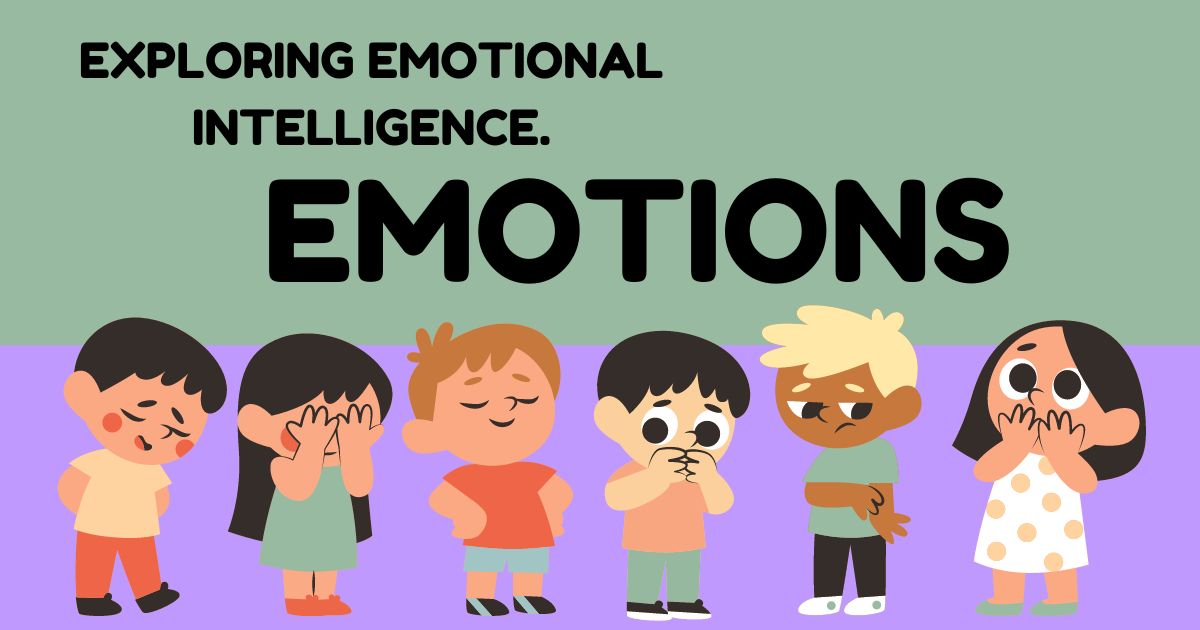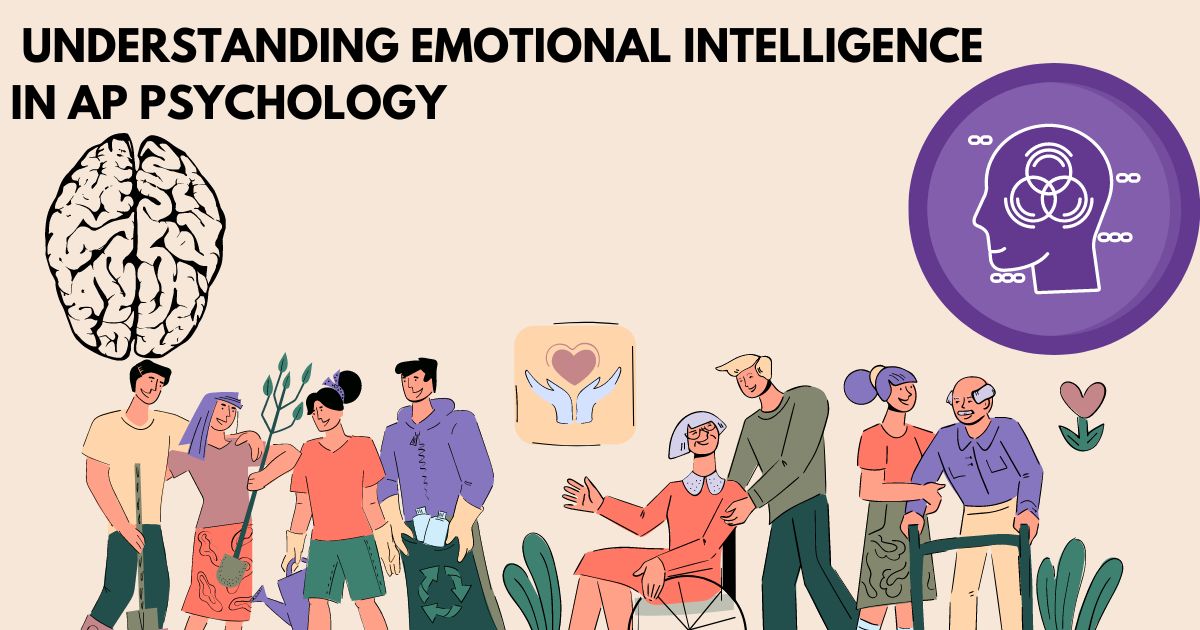Introduction:
High Emotional Intelligence
At the instant’s fast-paced global, having excessive emotional intelligence is more crucial than ever. Emotional intelligence, regularly known as EQ (Quotient), the capability to is familiar with, use, and manage your very own feelings in high-quality approaches. It helps to relieve stress, communicating effectively, empathizing with others, overcoming challenges, defusing conflicts. This composition delves into conception of its benefits, how you can cultivate it to achieve personal professional success.
What is Emotional Intelligence?
Emotional intelligence is a different idea that incorporates various key talents. These include self-centred, self-regulation, inspiration, compassion, and social abilities. Understanding those added substances is the most vital move toward developing emotional intelligence
Self-Awareness
Self-awareness is the capability to recognize and understand your own emotions. It involves being conscious of emotional countries, how they affect studies behavior. High intelligence starts with self-awareness, as it lays the foundation for other factors.
Self-Regulation
Self-regulation manage emotions in healthy ways. This controlling impulsive feelings actions, managing stress, conforming changing circumstances. Individualities high can regulate their effectively, leading to better decision-making problem-solving skills.
Motivation
Motivation context refers to an inner drive that goes beyond external prices. Passionate about what you do, having a strong achieve dreams, maintaining positive station even face setbacks.
Empathy
Empathy share others. Apprehensive of others’ emotions, needs, enterprises. Includes empathetic skills, which are essential in erecting connections and in effective communication.
Social Skills
Social skills abilities used to interact and communicate to others effectively. Teamwork, conflict resolution, connections. Individuals frequently adept at social relations navigate complexities in ease.
The Benefits of High Emotional Intelligence
High emotional intelligence gives numerous blessings which can notably beautify your personal and professional life. Here are some of the key benefits:
Improved Communication:
One of the primary advantages of high emotional intelligence is stepped forward conversation. When you recognize your own feelings and of others, you can communicate more actually and correctly. This ends in fewer misunderstandings and extra efficient interactions.
Better Relationships:
High emotional intelligence fosters higher relationships, both personal and professional. By being empathetic and understanding, you may construct more potent connections with others, leading to greater meaningful and pleasing relationships.
Enhanced Leadership Skills:
Effective leaders often own high emotional intelligence. They can control their own emotions, recognize and inspire others, and navigate social complexities. This makes them extra effective in guiding and provoking their groups.
Increased Resilience:
High emotional intelligence facilitates you to manipulate stress and get better from adversity. By information and regulating your feelings, you can hold a high quality outlook and handle demanding situations extra efficiently.
Greater Self-Motivation:
Individuals with high emotional intelligence are frequently distinctly inspired. They have a robust force to achieve their dreams and maintain a positive attitude even in difficult conditions. This intrinsic motivation can result in more success in both personal and expert endeavors.
How to Develop High Emotional Intelligence
| Strategy | Description |
|---|---|
| Practice Self-Awareness | Become more aware of your emotions by paying attention to how you feel in different situations. Keeping a journal can help track your emotional responses and identify patterns. |
| Manage Your Emotions | Learn to regulate your emotions using techniques such as deep breathing, mindfulness, and meditation. These practices can help you stay calm and composed, even in stressful situations. |
| Develop Empathy | Enhance your empathy by practicing active listening and trying to see things from others’ perspectives. Pay attention to verbal and non-verbal cues and respond with understanding and compassion. |
| Improve Your Social Skills | Work on improving social skills by engaging in activities that require teamwork and collaboration. Practice effective communication, conflict resolution, and building rapport with others. |
| Set Goals and Stay Motivated | Set clear, achievable goals for yourself and stay motivated by focusing on your passions and interests. Surround yourself with positive influences and seek feedback to stay on track. |
Developing high emotional intelligence is a continuous process that require for self-reflection and practice. Here are a few techniques to help you cultivate and decorate your emotional intelligence:
Practice Self-Awareness:
Start by using becoming greater aware about your emotions. Pay attention to how you sense in extraordinary conditions and the way your emotions impact your thoughts and movements. Keeping a magazine can be a helpful device for monitoring your emotional responses and figuring out styles.
Manage Your Emotions:
Learn to regulate your feelings via practising techniques inclusive of deep respiratory, mindfulness, and meditation. These practices let you live calm and composed, even in demanding conditions.
Develop Empathy:
To enhance your empathy, practice active listening and attempt to see things from others’ views. This involves being attentive to verbal non-verbal cues, responding with expertise compassion.
Work on Your Interactive abilities:
Work on improving on your social skills by participating in exercises that require cooperation and joint effort. Practice effective communication, compromise, and building affinity with others.
Set Goals and Stay Motivated:
Set clear, feasible objectives for you, and remain motivated by zeroing in on your interest and passions. Encircle yourself with positive impacts and look for input to remain focused.
The Role of High Emotional Intelligence in the Workplace
High emotional intelligence is specifically precious within the administrative centre, wherein it could contribute to a nice and effective work surroundings. Here are a few ways excessive emotional intelligence can gain you professionally:
Better Team Collaboration:
High emotional intelligence fosters better teamwork and collaboration. When team members understand and manage their emotions, they can work together more effectively and achieve common goals.
Enhanced Conflict Resolution:
Conflicts are unavoidable in any working environment. However, people with high emotional intelligence at their core can explore conflicts all the more, really by figuring out alternate points of view and tracking down commonly useful solutions.
Improved Job Performance:
Employees with high emotional intelligence have a tendency to carry out better in their roles. They can control pressure, live inspired, and adapt to changing situations, main to higher task delight and productiveness.
Stronger Leadership:
Leaders with high emotional intelligence can inspire and motivate their teams, leading to higher tiers of engagement overall performance. They also navigate complex social dynamics, to construct an advantageous organizational tradition.
Increased Employee Retention:
Associations that focus on emotional intelligence will generally have higher worker consistency standards. A steady and sympathetic workplace can prompt more noteworthy work fulfilment and reliability among representatives.
Common Myths About Emotional Intelligence
Despite its significance, there are several myths and misconceptions about emotional intelligence. Then are some common myths are detailed below.
Myth :Emotional Intelligence is Innate
While some individuals may actually retain advanced emotional intelligence, it’s a skill that can be created and enhanced over time. With practice and commitment, anybody can enhance their emotional intelligence.
Myth :Emotional Intelligence is All About Being Nice
Emotional intelligence isn’t just about being nice; it involves understanding and managing feelings effectively. This includes setting boundaries, making tough opinions, and handling conflicts constructively.
Myth :High IQ Equals High Emotional Intelligence
Intellectual intelligence(IQ) and emotional intelligence(EQ) are distinct. A person can have a high IQ but low EQ, and vice versa. Both types of intelligence are important, but they serve different purposes.
Myth :of Emotional Intelligence is Irrelevant in Technical Fields
Emotional intelligence is valuable in all fields, including specialized ones. Effective communication, teamwork, and conflict resolution are essential skills in any profession.
FAQs About High Emotional Intelligence
Q: What is the distinction among IQ and EQ?
A: IQ (Intellectual Quotient) measures cognitive talents which include good judgment, reasoning, and hassle-solving. EQ (Emotional Quotient) measures emotional talents, consisting of self-attention, self-law, empathy, and social skills. Both are important, but they serve distinct capabilities.
Q: Can emotional intelligence be found out?
A: Yes, emotional intelligence can be found out and developed thru practice and self-mirrored image. Techniques together with mindfulness, energetic listening, and empathy sports can assist decorate your emotional intelligence.
Q: Why is emotional intelligence essential in management?
A: Emotional intelligence is crucial for effective management because it enables leaders to apprehend and manage their feelings and people of their team contributors. This leads to higher conversation, battle resolution, and standard crew performance.
Q: How can I improve my emotional intelligence at work?
A: To upgrade your emotional intelligence at work, exercise self-awareness, control your feelings, extend empathy, and embellish your social competencies. Locks in collaboration, looking for input, and setting non-public dreams too can help.
Q: What are some symptoms of high emotional intelligence?
A: Signs of excessive emotional insights include strong self-consciousness, capable self-law, inherent inspiration, sympathy, and astonishing social competencies. People with over the top passionate insights are routinely great communicators, flexible, and able to build vigorous relationships.
Q: How does high emotional intelligence affect health?
A: High emotional intelligence positively affects intellectual health through enhancing self-recognition, self-law, and pressure control. Individuals with high emotional intelligence are higher equipped to address emotional demanding situations, lessen anxiety, and keep a superb outlook. This results in universal higher intellectual properly-being and resilience against intellectual health troubles.
Conclusion
High emotional intelligence is a significant skill that can basically influence your individual and proficient life. By getting it and dealing with your feelings, empathizing others, and making solid interactive abilities, you can investigate life’s difficulties all the more actually and develop critical connections. Whether you’re pointing for self-improvement or expert triumph, growing high capacity to understand individuals on a profound level is a helpful venture that can prompt a lead to a more satisfying and successful life.




